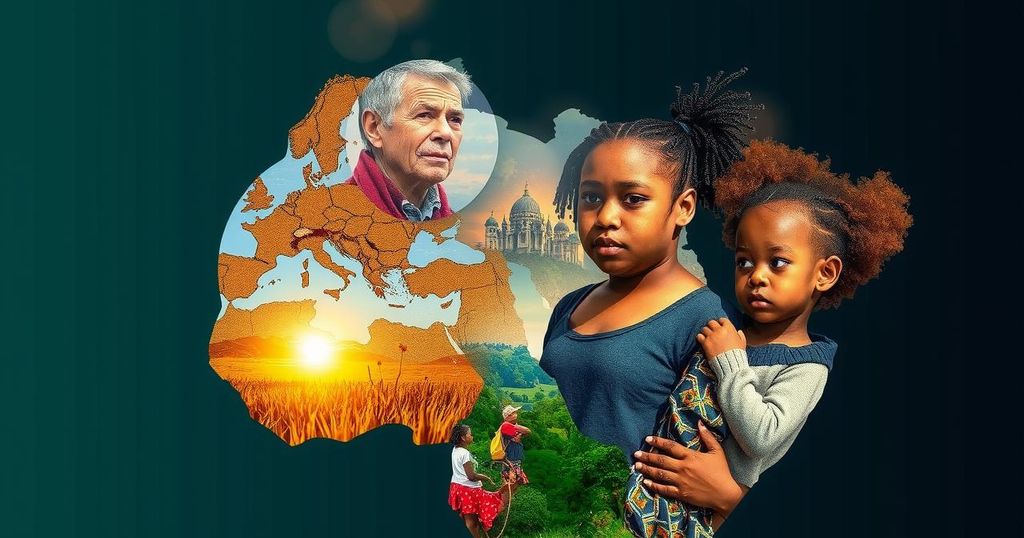Sub-Saharan African children are increasingly at risk from climate crises, with limited access to necessary resources, education, and support. A UNICEF report indicates that almost all children in assessed African nations face high risks, and less than 3% of global climate funding supports them. The urgent need for action was emphasized during COP29, where over 40 million children were reported out of school due to extreme heat.
Children in sub-Saharan Africa face significant risks from extreme climate events, which threaten their health, education, and overall well-being. A recent UNICEF report highlights that these children are largely overlooked in climate funding efforts. The scarcity of resources for climate-resilient infrastructure, healthcare, and education intensifies their vulnerability, leaving them without the necessary support to adapt to climate challenges. Moreover, the digital divide limits their access to essential skills that could enhance their future opportunities in education and employment.
According to “The State of the World’s Children 2024: The Future of Childhood in a Changing World,” by the 2050s, sub-Saharan African children will increasingly face severe weather conditions, including extreme heat and flooding. Alarmingly, virtually all children in 48 out of 49 assessed African nations are categorized as facing high to extreme risk from climate change. UNICEF reported that a mere 3 percent of global climate funding addresses children’s needs, emphasizing the urgent necessity for increased efforts to safeguard their future.
During the recent COP29 climate conference in Baku, UNICEF reported that extreme heat has forced over 40 million children in Africa and parts of Asia out of school this year. The organization urged world leaders to convert discussions into concrete commitments for children’s welfare, noting that fewer than half of the national climate action plans currently include child-specific elements, despite the substantial impact of climate change on young populations. On World Children’s Day, children from southern African nations collectively demanded a reform in the education system to make it more relevant and impactful amid evolving global challenges.
The article discusses the alarming situation of children in sub-Saharan Africa amidst the escalating climate crisis. The lack of significant climate financing directed towards children exacerbates their vulnerability to climate effects, such as extreme weather events and limited access to essential services. Studies show that exceeding half of the national climate contributions do not consider child-specific content, highlighting a critical gap in global climate responses.
In conclusion, the alarming risks faced by children in sub-Saharan Africa due to climate change necessitate immediate action from global leaders to secure their future. The oversight in climate funding dedicated to children must be addressed to ensure they have access to necessary resources. Comprehensive reforms are essential in educational systems to prepare youth for the modern world, particularly in this era of climate crisis.
Original Source: global.chinadaily.com.cn






